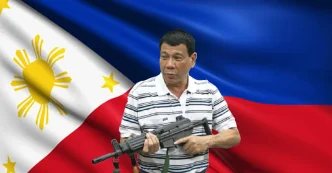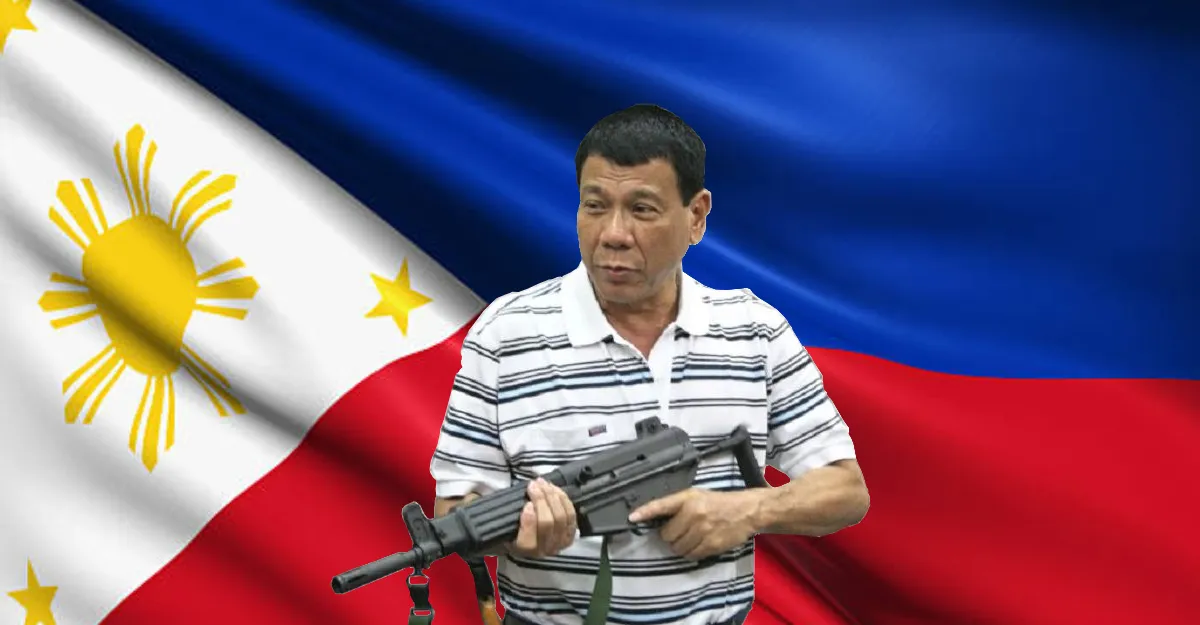Pressure is mounting on the International Criminal Court (ICC) to reject former Philippine President Rodrigo Duterte’s application for interim release from detention, as concerns grow over the potential risks to witnesses, victims, and their families in his ongoing crimes against humanity case. Advocacy groups and legal organizations have warned that granting temporary liberty to the 80-year-old, who faces charges related to his brutal war on drugs, could undermine the judicial process and embolden a culture of impunity in the Philippines.
Opposition to Release Gathers Momentum
On June 20, 2025, the International Association of Democratic Lawyers (IADL), a global nonprofit with consultative status at the United Nations, issued a strong statement opposing Duterte’s release from the ICC detention center in Scheveningen, the Netherlands. The group argued that allowing interim liberty could intimidate victims, witnesses, and legal representatives involved in the case. “The IADL believes that accountability must prevail. To grant him interim release now threatens or intimidates victims, their families, witnesses, and lawyers” the organization stated.
Similarly, the Philippines-based Duterte Panagutin Campaign Network echoed these concerns a day earlier, emphasizing that many witnesses are only recently finding the courage to come forward with their testimonies. The network cautioned that freeing Duterte might enable him to “actively continue his crimes” and further entrench the pervasive impunity that has marked his tenure. Their statement painted a stark picture of a nation still grappling with the violent legacy of Duterte’s policies, which saw thousands killed in extrajudicial operations during his presidency from 2016 to 2022.
The ICC’s Pre-Trial Chamber I is currently reviewing Duterte’s request under Articles 58 and 60 of the Rome Statute, which govern arrest warrants, initial proceedings, and interim release conditions. The IADL has urged the chamber to conduct a “de novo assessment”—a fresh evaluation of the case—to ensure that any decision prioritizes the strict criteria of the statute and centers the voices of victims. This call for a thorough reassessment underscores the gravity of the charges against Duterte, which include allegations of systematic murder as part of his anti-drug campaign.
Duterte’s Plea and the Humanitarian Debate
Duterte, now 80, has cited his advanced age and a commitment not to flee or commit further crimes as grounds for interim release to a third country, the identity of which remains undisclosed in public records. His counsel, Nicholas Kaufman, argued before the ICC that Duterte poses no flight risk and lacks the influence or power he once wielded as president. Kaufman also noted that a third country has agreed in principle to host the former leader during the interim period, though specifics remain redacted.
However, critics have dismissed these claims as misleading. Jojo Lacanilao, convener of the Duterte Panagutin Campaign Network, described the assertion that Duterte lacks influence as a “dangerous fiction.” He pointed to Duterte’s current role as mayor of Davao City, as well as the political positions held by his family members, including his daughter Sara Duterte, who serves as vice president despite facing an impeachment trial in the Senate. Duterte’s sons, Sebastian and Paolo, were also reelected as Davao City’s vice mayor and congressman, respectively, in the recent midterm elections. “His current position is irrefutable proof that he remains to have considerable resources and access to authority” Lacanilao argued.
The IADL, while acknowledging that humanitarian considerations for an accused person of advanced age deserve attention, cautioned against what it called “dubious, deceitful and hypocritical pleas.” The group stressed that such considerations must not override the pursuit of justice or compromise the rights of victims. Alternatives to detention, they argued, should only be entertained if they do not jeopardize the ICC’s mandate to deliver accountability.
Witness Safety and the Risk of Intimidation
At the heart of the opposition to Duterte’s release is the fear that it could directly endanger those who have risked their lives to speak out against his administration’s actions. Lacanilao highlighted the courage of survivors, journalists, activists, and ordinary citizens who have provided testimony about the horrors of the drug war, including streets “littered with corpses executed in the most violent of manners.” He warned that releasing Duterte would place these individuals “in the direct path of intimidation and harm” and could allow him to “once again incite violence, rally his supporters, and terrorize a nation still reeling from his brutality.”
The potential for Duterte to use any platform afforded by interim release to influence public sentiment or disrupt the judicial process is a recurring concern. Critics argue that his nickname, “The Punisher,” reflects a persona that continues to resonate with segments of the Philippine population, potentially enabling him to mobilize support and undermine the ICC’s efforts. Lacanilao described the idea of release as “an act of endangerment to the very people the Court is sworn to protect” rather than a humanitarian gesture.
Broader Implications for International Justice
Beyond the immediate risks to witnesses and victims, advocacy groups have framed the ICC’s decision on Duterte’s interim release as a critical test for the future of international justice. Lacanilao pointed out that there is “no precedent for granting provisional release to an individual accused of orchestrating such widespread and systematic atrocities with such unashamed pride.” He cautioned that leniency in this case could set a dangerous precedent, signaling to authoritarian leaders worldwide that even the gravest crimes against humanity might be negotiable.
The prosecution’s case against Duterte rests heavily on the testimonies of those who lived through the drug war, a campaign that human rights organizations estimate resulted in tens of thousands of deaths, many of them extrajudicial killings. The National Union of Peoples’ Lawyers, a Philippine-based member of the IADL, has been instrumental in supporting victims’ families, amplifying their calls for justice. The outcome of Duterte’s interim release application, therefore, carries weight not only for the Philippines but also for the ICC’s credibility as an institution capable of holding powerful figures accountable.
Political Context and Domestic Dynamics
The domestic political landscape in the Philippines adds another layer of complexity to the ICC proceedings. Duterte’s family continues to wield significant influence in Davao City, often referred to as the family’s political stronghold. Sara Duterte’s position as vice president, despite her ongoing impeachment trial, underscores the enduring clout of the Duterte dynasty. This influence raises questions about whether interim release could provide Duterte with opportunities to interfere in the case, either directly or through proxies.
Public sentiment in the Philippines remains deeply divided over Duterte’s legacy. While some view his hardline approach to crime as a necessary response to the country’s drug problem, others condemn the widespread human rights abuses that defined his presidency. The ICC case has reignited debates about accountability and the rule of law, with activists and victims’ families pushing for a process untainted by political interference or intimidation.
A Pivotal Moment for the ICC
As the ICC Pre-Trial Chamber deliberates on Duterte’s application, the stakes could not be higher. Advocacy groups argue that the court must balance humanitarian considerations with its fundamental duty to protect victims and ensure a fair judicial process. The decision, if it leans toward release, could have far-reaching consequences, potentially undermining trust in the ICC’s ability to deliver justice in cases of mass atrocities.
For now, the voices of those affected by Duterte’s policies remain central to the discourse. Their testimonies, built on years of trauma and resilience, form the backbone of the prosecution’s case. As the ICC navigates this complex terrain, questions linger about whether justice will prevail over political and personal considerations, and whether the court can safeguard those who have already sacrificed so much to seek accountability.
















